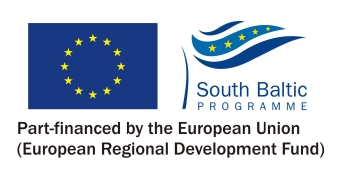
W ramach Progrmu Współpracy Transgranicznej Południowy Bałtyk, Akademia Morska (Wydział Nawigacyjny - IIRM) realizuje projekt Marine Competence, Technology and Knowledge Transfer for LNG (Liquid Natural Gas) in the South Baltic Sea Region (MARTECH) w partnerstwie z ośrodkami z rejonu. Celem projektu jest transfer wiedzy i umiejętności z zakresu nowoczesnych technologii związanych z LNG. Obecnie prace trwają nad identyfikacją technologii oraz opracowywaniem strategii. Kierownikiem projektu w AM jest dr inż. Stefan Jankowski
Czas trwania: 01.01.2012 – 31.12.2014
Budżet: 1 377 914.35 EUR
Strona WWW: http://www.golng.eu
EVENTS:
Seminar - LNG Technologies Szczecin, 26.11.2014
According to one of the topics of the Baltic Sea Region Strategy “Energy independency” most of the countries – Poland and Lithuania in the SBR – have declared their intentions to build up LNG terminals in order to decrease their energy dependence on Russia. At the same time, it has to reduce its coal use as part of its climate policy obligations. Countries in the other part of the region – Sweden, Germany and Denmark – own an LNG technologies and a record of the successful terminal operation. It would be extremely effective to use knowledge and technology that are tested and proved to implement into the regions that plan to build LNG terminals.
Problematic nature of the project initiative is based on a current situation indicating that declared investments in Poland and Lithuania will not be a big benefit for the regional maritime industries. Because of the lack of technologies and relevant competences terminals construction and operation will be outsourced out of the countries of the SBR.
Supporting the local maritime industries with the LNG building and operation knowledge will allow them benefit from the investments by gaining specialisation and efficiency. Region’s maritime companies will develop new products and competencies that are demanded in the global market. Created supply chain will establish cooperation in between regions maritime industries and scientific institutions. That will allow companies to improve them product using scientific knowledge and make them more competitive by forming consortiums for big international tenders – cluster development. LNG appearance itself creates new business possibilities in transportation, port operations and energy sectors. That needs to be supported by scientific and technological knowledge to ensure benefit for local companies. Implemented project activities will allow region’s governments to benefit from energy security plans not just establishing a new energy source but also supporting local maritime industries.




